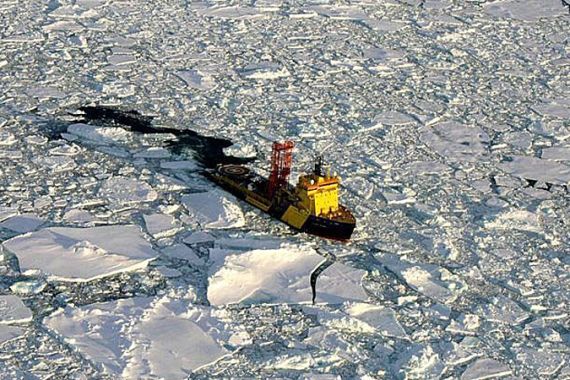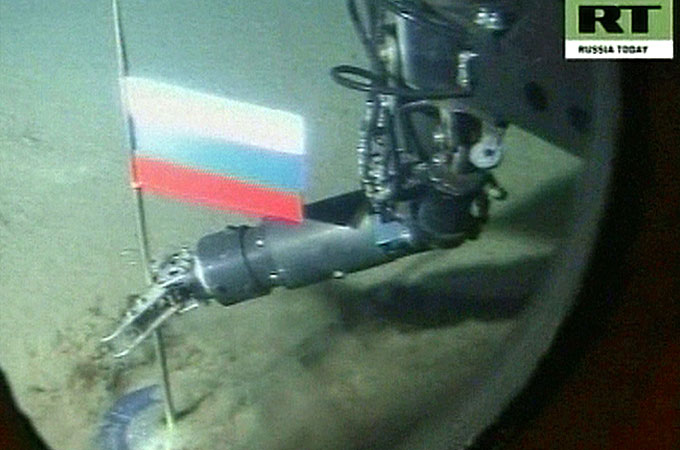Nations meet over Arctic claims
International summit aims to ease tensions between nations with competing claims to the mineral-rich region.

 |
| Russia made a symbolic claim in 2007 when it planted a flag on the seabed under the North Pole [AP] |
Nations with competing claims to the Arctic region are meeting in Moscow, Russia’s capital, in a bid to ensure the region does not become a battleground for resources.
Olafur Ragnar Grimsson, Iceland’s president, called for “Cold War” tensions between the countries to end as he spoke on the sidelines of the summit on Wednesday.
“Countries should not discuss territorial claims against each other, but engage in dialogue,” Russia’s Itar-Tass news agency quoted him as saying.
Hundreds of delegates from all around the world, including Canada, Denmark, Norway, Russia and the United States – who have each laid claims to the Arctic – are at the forum to work out how to divide up the Arctic seabed, which is rich in mineral resources.
Sergei Shoigu, Russia’s emergencies minister and president of the Russian Geographical Society, said it would “present the world community with a picture of the region’s future as it is seen by the Russian experts”, RIA Novosti reported.
Lomonosov Ridge
On Tuesday Russia’s natural resources minister said Arctic territories belonging to his country held 100 billion tonnes of oil and gas.
Moscow is one of three countries planning to file claims to the United Nations to prove their respective rights to the Lomonosov Ridge, an underwater mountain range.
Yuri Trutnev said Moscow would speed up collection of scientific data and submit it to the United Nations in 2013, matching a similar claim made by Canada, another candidate, with Denmark being the third.
“Lomonosov is about working for the future, I don’t think we will start to develop this territory immediately,” he told reporters.
A Kremlin climate change adviser said Russia was optimistic that the UN would approve its claim to territory.
The two-day meeting, called “The Arctic: Territory of Dialogue”, also comes a day after a British energy firm announced it had made its first discovery of oil off the coast of Greenland.
US researchers have warned that global warming could leave the Arctic region ice-free by 2030, opening the area up to oil and gas exploration.
Russian claim
Russia alarmed its Arctic neighbours when it planted a flag on the ocean floor under the North Pole in 2007 in a symbolic staking of its claim over the region.
Last week it signed a maritime border treaty for the Barents Sea with Norway, where tens of billions of oil and gas reserves are believed to lie.
The two countries have already begun tapping for mineral riches in the sea, with Norway’s Statoil beginning its Snoehvit natural gas field in 2007.
Russia’s Gazprom, in conjunction with Statoil and France’s Total, is developing the Shtokman gas field.
Dmitry Medvedev, Russia’s president, signed an Arctic strategy paper in 2008 that said the polar region must become the nation’s “top strategic resource base” by 2020.